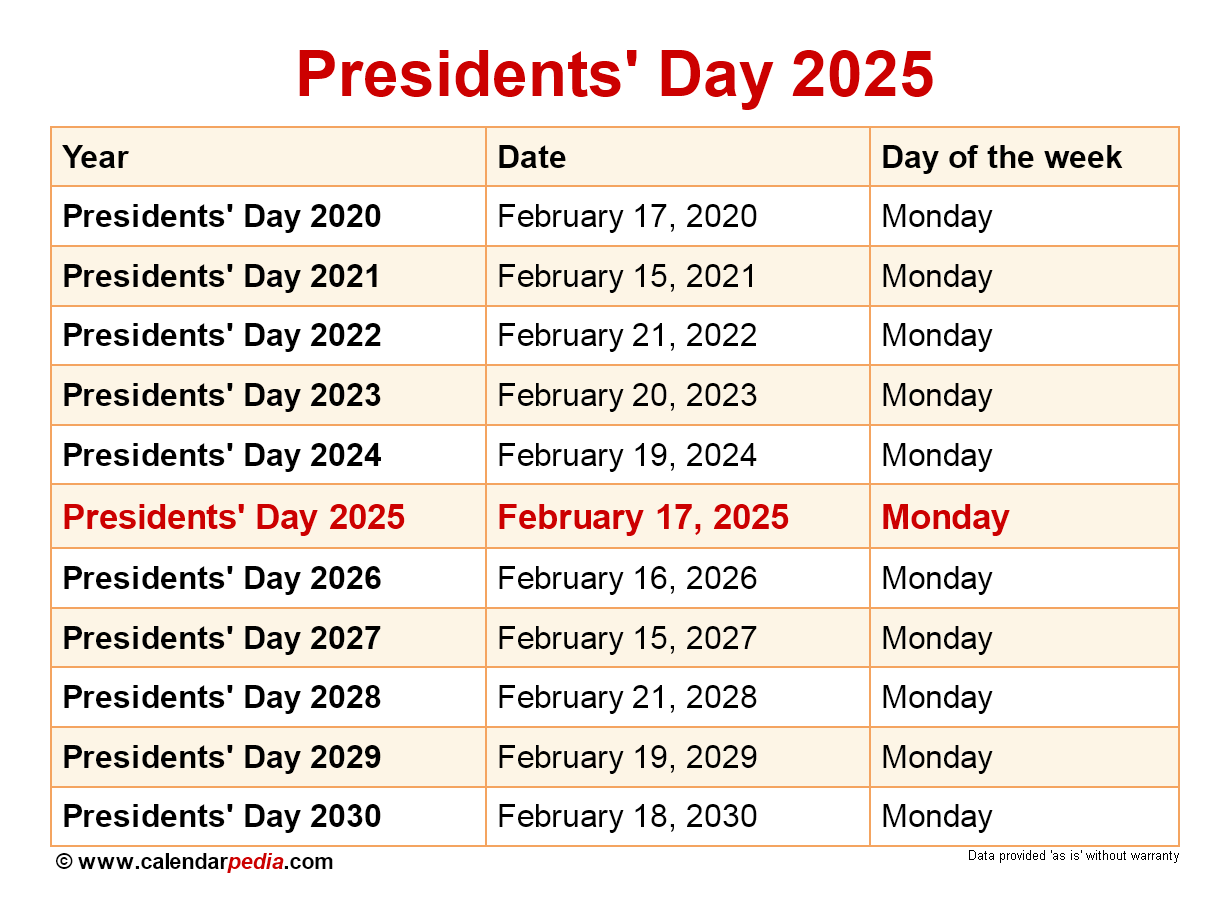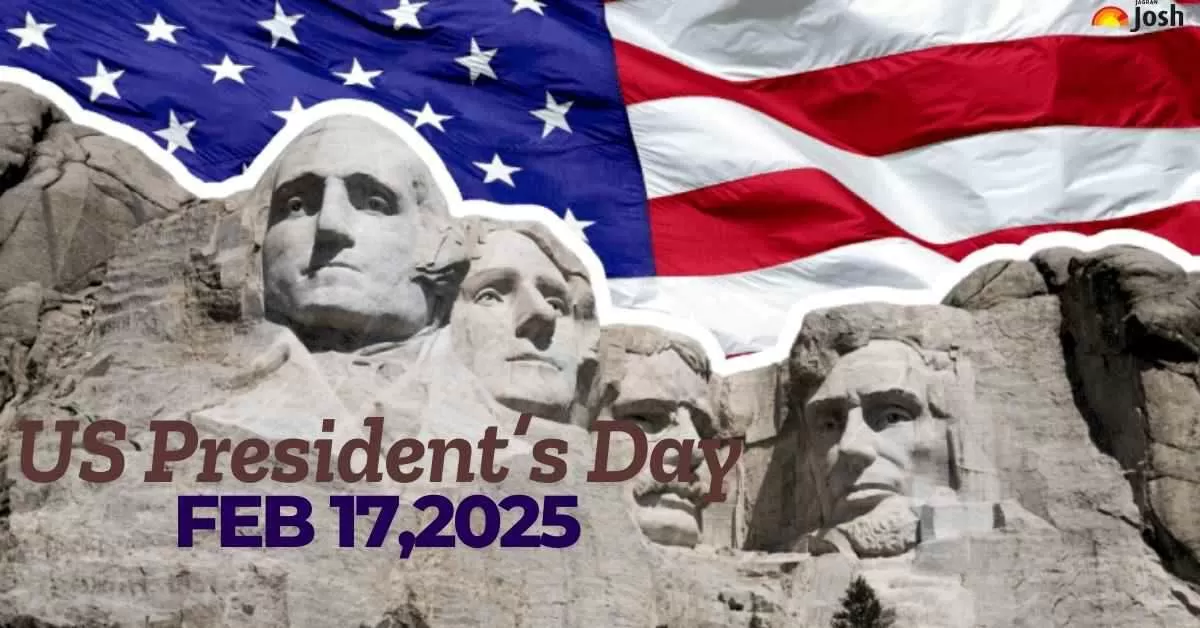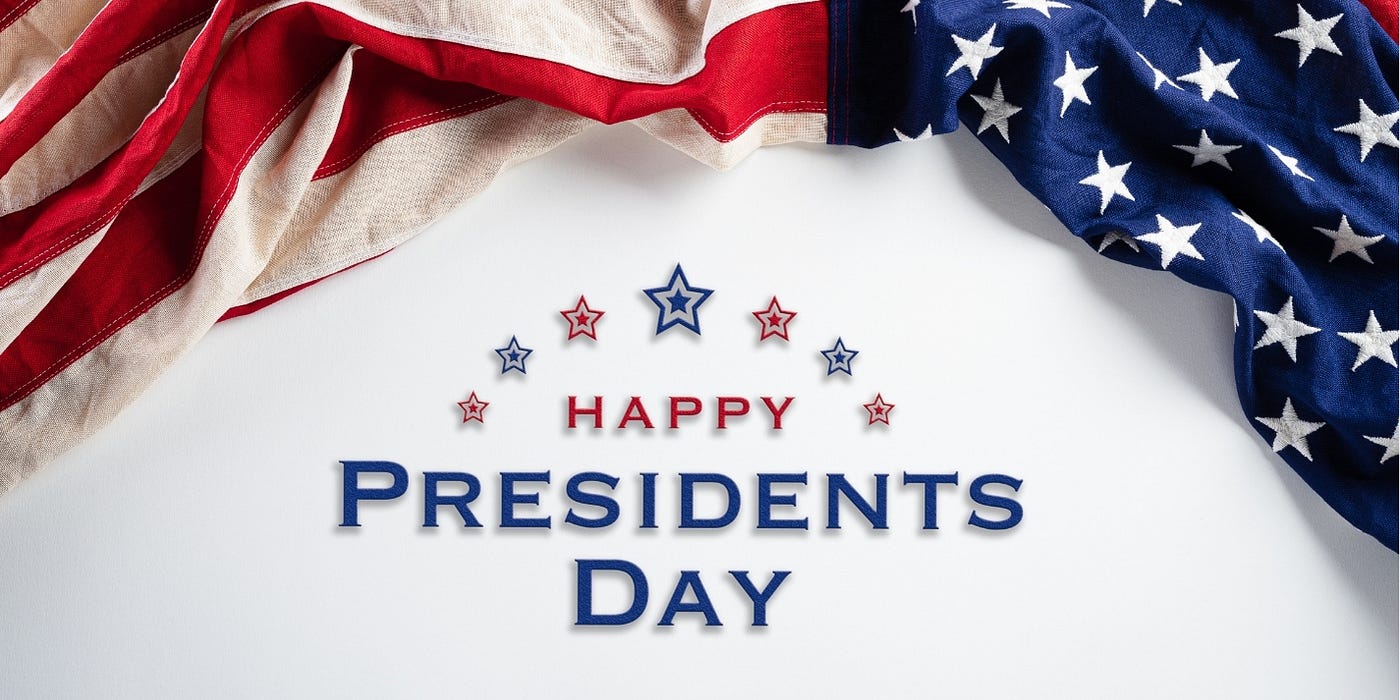Why do Americans celebrate Presidents' Day, and what does it truly signify? Presidents' Day, a federal holiday observed annually in the United States, is a time for patriotic remembrance and reflection, primarily honoring the office of the presidency.
The genesis of Presidents' Day can be traced back to the late 1800s, specifically the 1880s, when the birthday of George Washington, the first U.S. President, was first celebrated as a federal holiday. Initially, the holiday was observed on February 22nd, Washington's actual birthdate. However, the Uniform Monday Holiday Act, enacted in 1971, shifted the observance to the third Monday of February to create a three-day weekend for federal employees. This change, while aimed at providing more leisure time, also led to the broadening of the holiday's scope to encompass all U.S. presidents, not just Washington. As such, it became a day to recognize the contributions and legacies of all individuals who have held the highest office in the nation. Although the initial intent was to honor George Washington, it evolved to celebrate the office of the presidency in its entirety.
The shift to the third Monday of February, however, meant that the holiday no longer aligned precisely with Washington's birthday. Abraham Lincoln, born on February 12, is also often commemorated on this day, further adding to its expanded focus. The holiday is a time to reflect on the history of the presidency and the men who have shaped the nation. Various civic events, educational programs, and community gatherings often take place, encouraging citizens to learn about past presidents and their roles in American history. While the holiday does not have a specific religious affiliation, it provides an opportunity for people of all backgrounds to come together and appreciate the leadership of those who have served the country.
| Category | Details |
|---|---|
| Holiday Name | Presidents' Day (also known as Washington's Birthday) |
| Observed Date | Third Monday in February |
| Date in 2025 | February 17, 2025 (This date has already passed.) |
| Primary Commemoration | George Washington and Abraham Lincoln, and all U.S. Presidents. |
| Significance | Honors the office of the presidency, recognizes the contributions and legacies of all U.S. Presidents. |
| Federal Holiday Status | Yes |
| Origin | Originated in the 1880s as Washington's Birthday. |
| Activities | Patriotic remembrance, educational events, community gatherings. |
| Notable Closures | Government offices, banks, post offices. |
| Reference Link | National Archives - Presidents' Day |
The holidays name itself reflects its evolving purpose. While originally known as Washington's Birthday, the term "Presidents' Day" gained prominence over time, a change further cemented by the Uniform Monday Holiday Act. This shift highlights the broader celebration of the presidential office. The first attempt to officially change the holiday's name came in 1951, when the President's Day National Committee was formed, with the specific goal of honoring the office of the presidency rather than focusing solely on a single individual.
This is not to say that George Washington is any less of a focal point. He remains a central figure in the celebrations, and his birth on February 22nd continues to be remembered. The holidays evolution underscores the importance of recognizing the collective impact of all U.S. presidents and their shared role in shaping the nation's destiny. The federal holiday provides a time to reflect on the leadership of all U.S. Presidents. Additionally, this day also gives people the opportunity to understand the complex history and the enduring ideals of the United States.
The significance of Presidents Day extends beyond simple commemoration; it is a day for civic education. Schools often incorporate lessons about U.S. presidents into their curriculum, and museums and historical societies may organize special exhibitions and events. Many Americans take advantage of the day to visit historical sites, such as presidential libraries and museums, to learn more about the lives and legacies of those who have held the nation's highest office. The holiday encourages a deeper understanding of the presidency, its history, and the individuals who have served the country.
In the context of 2025, its important to note that Presidents' Day fell on Monday, February 17th. This day has already passed, offering a moment to reflect on its observances, the events and activities that took place, and the lessons learned. This date is fixed, and knowing the exact date is a key part of the celebration. For those looking ahead to future years, it is always observed on the third Monday of February. Therefore, the exact date changes annually, providing a recurring opportunity to reflect on the role of the presidency in American society.
The federal holiday status of Presidents' Day is significant, meaning that many government offices, banks, and post offices are closed on this day. This allows people to take a break from their usual routines and participate in celebrations or spend time reflecting on American history. Schools are also often closed, providing children with an opportunity to learn about the presidents and their contributions to the country. Its a day to step back from the ordinary and participate in the commemoration of leadership.
This holiday also serves as a time for patriotic reflection. It encourages citizens to consider the values, principles, and ideals that have shaped the United States. Commemorating all the presidents who have served in the country, not just George Washington and Abraham Lincoln, the holiday embodies respect for those who have held the highest office and made significant contributions to the nation's development. Moreover, it offers an opportunity to engage with the nation's history and the leaders who have guided it through moments of triumph and crisis.
The holiday's evolution reflects the dynamic nature of American history and the ongoing process of self-understanding. Starting as a day solely dedicated to the birthday of George Washington, the holiday has evolved into a broader celebration that honors the office of the presidency and all of the individuals who have held it. This evolution demonstrates the importance of adapting to change and the ongoing effort to understand the country's history. While specific dates may shift due to calendar adjustments, the essence of the holiday remains unchanged: an opportunity to reflect on leadership, learn about the past, and celebrate the values that define the United States.
Understanding the history of this holiday is important. From the initial focus on George Washingtons birthday to its modern-day form, recognizing the contributions of all U.S. presidents. This evolution also reflects a larger trend within American culture of recognizing more inclusive histories. Additionally, the changes in the holiday's observance date, such as the adoption of the Uniform Monday Holiday Act, further illustrate the importance of respecting the legacy of all those who have served as president.
The holiday provides a valuable occasion for everyone. From historical education to civic appreciation, Presidents Day plays a critical role in how the nation remembers its past and looks forward to the future. It is a time for everyone to remember the history of the nation. As a day for patriotic remembrance, and a time for appreciating the leaders who have shaped the nation's path.
- Foundation The History And Evolution Of Beautys Base
- Barry Keoghan Enjoys Cohabitation With Lucy Boynton


